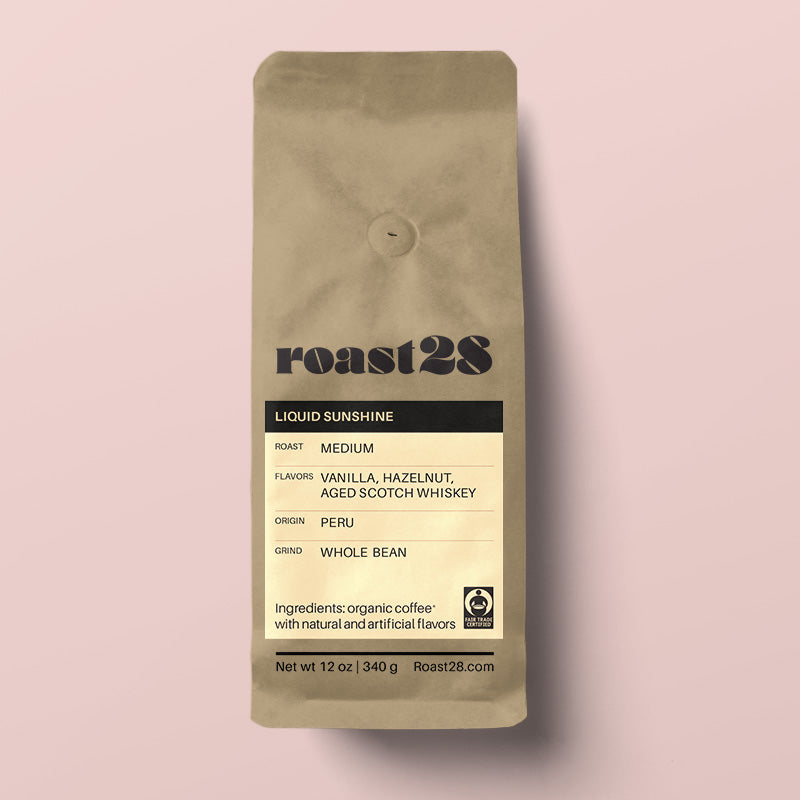Understanding the difference between natural and added flavors in coffee starts with high-quality beans. These flavors come from the beans' origin, roasting process, and brewing method. Natural flavors include chocolate, caramel, or fruit notes, which come directly from the beans. Organic dark roast beans develop rich, complex flavors naturally. Added flavors, however, are infused during processing or packaging.

Distinguishing natural v. artificial flavors in coffee
Coffee drinkers should understand the difference between natural and added flavors to make informed choices. Added flavors that meet USDA organic standards further ensure quality and purity. Organic coffee with natural and artificial flavors, like Roast28 Liquid Sunshine, adds complexity while maintaining high quality. Recognizing this helps consumers choose coffee that aligns with their taste and health preferences.

Examples of natural coffee flavors
Natural flavors in coffee come from the beans’ origin, variety, and processing. USDA Organic-certified beans retain pure, unaltered flavor notes. Robusta coffee often has bold, earthy, and nutty flavors with hints of dark chocolate. Arabica specialty coffees offer sweeter, more complex notes like berries, citrus, floral, and caramel. Factors like soil, climate, and roasting influence these flavors.

How the production process contributes to flavor
The production process greatly affects coffee’s natural flavors. Fair Trade and organic coffee are often grown in nutrient-rich soil, enhancing flavor complexity. Specialty coffee producers use careful harvesting, sun-drying, and small-batch roasting to preserve unique taste profiles. Large-scale production, however, prioritizes efficiency, sometimes compromising quality with mechanical harvesting and fast roasting. These differences impact the depth and purity of coffee flavors.

Quality control
Quality control during processing and roasting is crucial for preserving natural flavors in coffee. Organic dark roast beans require precise roasting to maintain rich, bold notes without burning. Careful temperature control ensures balanced flavors, highlighting chocolate, caramel, or smoky undertones. Poor processing or inconsistent roasting can create bitterness or dull flavors. Strict quality control guarantees a smooth, flavorful cup.

Specialty coffee v. mass-produced
Mass-produced coffee lowers costs but often sacrifices flavor and quality. Unlike Fair Trade and organic coffee, large-scale production uses mechanical harvesting and fast roasting. These methods reduce labor costs but can mix unripe beans, creating bitterness. Mass production also relies on additives to mask lower-quality flavors. While cheaper, it lacks the depth and complexity of carefully crafted coffee.

Check your labels
Coffee drinkers should check labels for terms like “natural flavors,” “artificial flavors,” and certifications like USDA Organic or Fair Trade. Organic coffee with added flavors can still meet high standards if labeled with natural extracts or essential oils. Avoid vague terms like “flavoring” without details. Understanding labels helps you confidently choose coffee that aligns with your taste and values.




